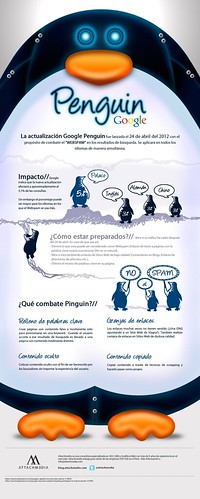Exact name domains have long been a sure fire way to secure yourself a good position in Google. The idea is that you buy a URL that includes the keyphrase you want to target – so if you have a site selling flowers in Melbourne you might call it ‘buy-flowers-in-Melbourne’ and that would once have seen you hop right to the top of the heap.
That however has all changed thanks to Google Penguin which is a big wet slap in the face for webmasters who own ENDs (among many others). If your site has recently been shunted down the SERPs and you are the proud owner of ‘buy-cheap-computers-online.com’ then Penguin may be responsible.
Why Penguin Doesn’t Like ENDs
Google Penguin was designed in order to try and eliminate spam from Google and like it or not it’s probably fair to say that the vast majority of exact name domains are quite spammy. If you have an exact name domain then this right away suggests your site isn’t going to be very diverse or have much editorial – a site like ‘WhatsApp-for-PC.Com’ is clearly targeted at getting traffic from a single search and doesn’t really offer much else. It’s a make-money-quick scheme and little else. This then means that if you have an exact name domain that Google is going to think you smell fishy – and Google Penguin is one penguin that doesn’t like fish.
Google has recently been talking about the power of brands and how changes to Google are going to favour brands over ENDs more and more in future. The reason for this is presumably that Google wants to send its users to established and recognizable sites and companies – which in most cases is where the users want to end up. This gives the search results more authority and reliability and means you’re less likely to come across something that a teenager wrote.
Anchors
And then there’s another reason that having an END can get you into trouble – and that’s because it leads to unnatural looking anchors in your inbound links. Once upon a time this was actually another advantage to using ENDS – because owning them meant that the natural way to link to your site was to use a keyphrase in the anchor. However today Google’s algorithm is a lot more sensitive to low quality link building and if you have thousands of links point at your site all with the a keyword anchor, then that’s going to damage the way Google views your site. Google Penguin is looking for variations on keywords and more natural looking links, so you need to try and encourage this kind of link building for your own site.
Where to go From Here?
So the question that all END owners should be asking is ‘what do I do now?’. Well the obvious answer is to sell up those domains (to people who don’t know about Google Penguin yet preferable…) and to focus their efforts on building a recognizable and professional brand. This will benefit your business in other ways too and will give you many more opportunities for marketing and promotion in future. The bottom line is that if you take your business seriously and have real passion and interest in it, then so will your visitors and so will Google.

